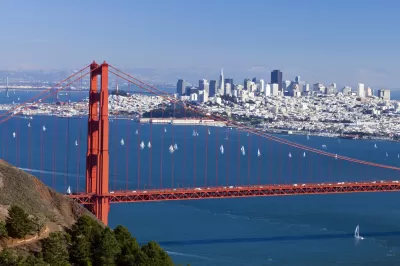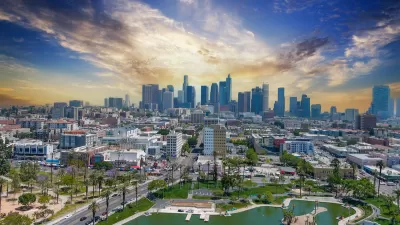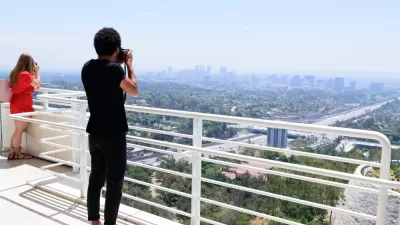Los Angeles' relative economic stagnation from 1980 onward was as much a choice as was the Bay Area's meteoric rise. According to planning scholar Michael Storper's account, Los Angeles' culture—not any policy or industry—is to blame.

"In 1970, the San Francisco Bay and Los Angeles areas ranked, respectively, numbers four and one in per capita income in the United States. In 2009, after both areas grew by more than 50 percent in population, they were, respectively, numbers one and twenty-five."
"L.A.’s and the Bay Area’s divergence depends largely on what Storper referred to as the 'dark matter' of public policy. Lurking behind every data point and every policy are forces like curiosity, relationships, open-ness, diversity, civic self-image, and values. These factors are often disregarded by short-sighted wonks and bureaucrats not because they’re not crucial but because they aren’t easily quantified."
"If an individual, firm, or government doesn’t have the knowledge or the capital to realize their dreams, so be it. But if they fail because they’re not open to the wisdom, energy, diversity, ambition, and creativity of other human beings, well, that’s something else....Los Angeles’ economic failing is not just a business failing or a policy failing. It is a moral failing....What else do you call it when 25.7 percent of residents in the biggest county in the richest state in the richest country in the world live in poverty?"
FULL STORY: Los Angeles' Moral Failing

Trump Administration Could Effectively End Housing Voucher Program
Federal officials are eyeing major cuts to the Section 8 program that helps millions of low-income households pay rent.

Planetizen Federal Action Tracker
A weekly monitor of how Trump’s orders and actions are impacting planners and planning in America.

Ken Jennings Launches Transit Web Series
The Jeopardy champ wants you to ride public transit.

California Invests Additional $5M in Electric School Buses
The state wants to electrify all of its school bus fleets by 2035.

Austin Launches $2M Homelessness Prevention Fund
A new grant program from the city’s Homeless Strategy Office will fund rental assistance and supportive services.

Alabama School Forestry Initiative Brings Trees to Schoolyards
Trees can improve physical and mental health for students and commnity members.
Urban Design for Planners 1: Software Tools
This six-course series explores essential urban design concepts using open source software and equips planners with the tools they need to participate fully in the urban design process.
Planning for Universal Design
Learn the tools for implementing Universal Design in planning regulations.
Ada County Highway District
Clanton & Associates, Inc.
Jessamine County Fiscal Court
Institute for Housing and Urban Development Studies (IHS)
City of Grandview
Harvard GSD Executive Education
Toledo-Lucas County Plan Commissions
Salt Lake City
NYU Wagner Graduate School of Public Service





























